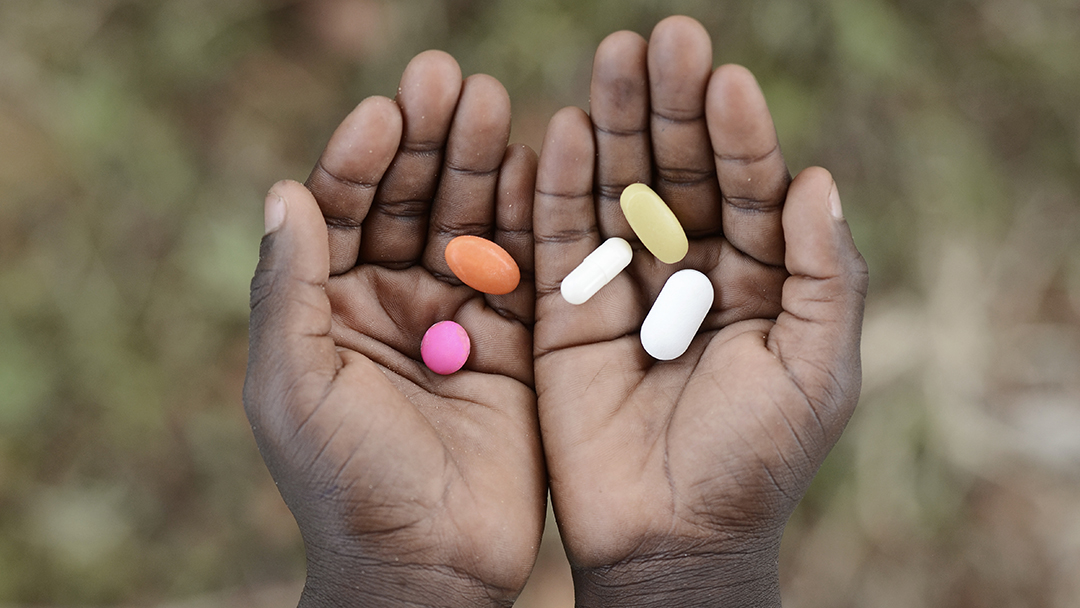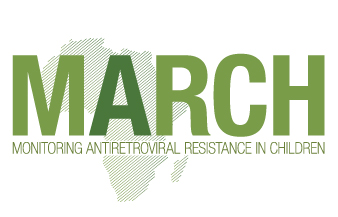MARCH
Monitoring Antiretroviral Resistance in Children


Objective
To assess the prevalence of transmitted and acquired HIV drug resistance in children living with HIV in Lagos, Nigeria.
To evaluate the treatment outcomes of children on first- and second-line antiretroviral treatment in Lagos, Nigeria.
Description
By the end of 2011, globally 3.4 million children under the age of fifteen were living with HIV of whom more than 90% were in sub-Saharan Africa. In 2011, 330,000 children were newly infected with HIV. Without antiretroviral treatment (ART), their prognosis is poor, as progression towards full blown AIDS and death is faster than in Western settings.
Children are particularly at risk of treatment failure and drug resistance for many reasons. It is very difficult to get children on the correct drug dosage. In some cases, paediatric formulations are not available and children have to take adult formulations, which makes the dosage and drug administration even more difficult. Furthermore, the antiretroviral drugs used for the prevention of mother-to-child transmission have selected resistant viruses for resistance in some children. Last but not least, incomplete adherence is the most important threat to successful (paediatric) ART programmes: it is a challenge to keep children taking their drugs on a daily basis. The rapid scale‐up of ART has saved millions of lives, including the lives of children. However, the downside of it (and particularly in children) is the potential emergence of HIV drug resistance.
Previous studies on adherence and HIV drug resistance have focussed primarily on adults; research among children is rare, especially in resource‐limited settings. The Monitoring Antiretroviral Resistance in Children (MARCH) study aims to contribute to the improvement of paediatric HIV care in sub-Saharan Africa by monitoring HIV drug resistance cohorts of children who started first line or second line ART.
MARCH strengthens the capacity of the Joint Clinical Research Centre (JCRC) in Uganda and Lagos University Teaching Hospital (LUTH) in Nigeria. It monitors HIV resistance to ART amongst children to collect information that can contribute to optimizing care and treatment guidelines for paediatric ART programs in Africa.
MARCH takes place in the context of the PharmAccess African Studies to Evaluate Resistance (PASER) for adults, creating an international network on HIV drug resistance in Africa.
AIGHD Research Lead
Dr Kim Sigaloff and Prof Tobias Rinke de Wit
PhD students: Sonia Boender MSc and Ragna Boerma MSc
Partners
PharmAccess Foundation
Joint Clinical Research Centre (JCRC)
Lagos University Teaching Hospital (LUTH)
Institute of Human Virology – Nigeria (IHVN)
Advanced Biological Laboratories (ABL)
Contact info
Professor Tobias Rinke de Wit (t.rinkedewit@aighd.org)
Marloes Nijboer (m.nijboer@aighd.org)
Funders
Uganda:
European and Developing Countries Clinical Trials Partnership (EDCTP)
Ministry of Foreign Affairs of the Netherlands (NWO-WOTRO the Netherlands-African partnership for capacity development and clinical interventions against poverty-related diseases (NACCAPII) (ART-A phase I, ART-A phase II)
Jura Foundation
Nigeria: Heineken Africa Foundation
AMC Global Child Health Group
Countries
Nigeria
Uganda
